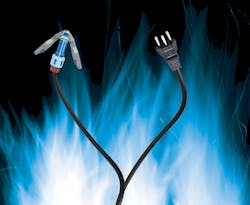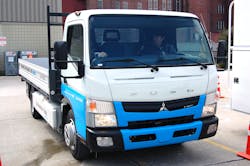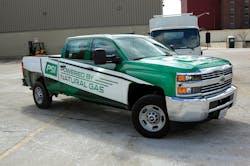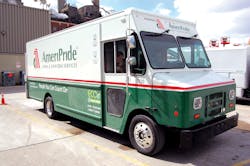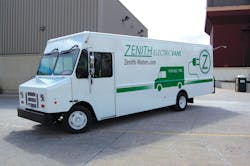Despite what Jim Castelaz, CEO and founder of Motiv Power Systems, describes as a catch-22 created by the volatility of diesel fuel prices—“When diesel prices are high, fleets say they can’t afford to invest in new propulsion technology; but when they are low, they say they don’t need to invest in such technology”—he is finding more of them starting to take a “long-term strategic view” where alternative propulsion is concerned.
For that reason, he thinks the market for alternatively powered vehicles will remain quite robust going forward.
“There are three legs to the ‘economic stool,’ if you will, for alternative propulsion,” he explains. “First, you get lower and more stable prices from alternative fuels compared to diesel. Next, you have lower maintenance costs followed by the impact on your operations overall.”
By that he means lower maintenance needs can translate into more vehicle uptime, thus increasing productivity.
“Also, noise is a big deal, especially when we’re facing a driver shortage,” Castelaz adds. “Less noise means a more comfortable work environment and a more favorable operating position in residential neighborhoods.”
The recent National Truck Equipment Assn. (NTEA) Work Truck Show made a number of the latest alternatively propelled vehicles available for test drives. Following is a selection of what fleets can now tap into for their operations.
Ford Motor Co. also recently named Lightning Hybrids as one of three initial modifiers to its new Advanced Fuel Qualified Vehicle Modifier program, meaning vehicles they modify within approved guidelines retain their factory warranties.
“All current population studies note that people are moving back to the cities,” noted Fuso president and CEO Jecka Glasman. “It is going to be busy and crowded, but goods still need to be delivered. What better way to deliver goods than with a truck with zero emissions and zero noise pollution.”
General Motors partnered with PSI late last year and began introducing heavy-duty pickups and full-size vans powered by a CNG-fueled 6.0-liter V8 engine along with a propane-powered option in the first quarter of this year. All PSI-modified vehicles will be covered by Chevrolet and GMC’s five-year or 60,000-mi. limited powertrain warranty, whichever comes first.
Freightliner, which is celebrating its 75th anniversary this year, illustrated how much trucks have changed during that time span by showing off an M2 112 SD Vactor vacuum excavator (top) powered by a Cummins ISL G engine that operates on CNG, along with two electric-powered walk-in vans: a Morgan Olson walk-in van equipped with Motiv’s all-electric powertrain (middle) and one powered by the electric propulsion system offered by Zenith Motors (bottom).
Motiv’s Jim Castelaz told Fleet Owner that as more manufacturers and fleets become involved in the alternative propulsion space, costs will decline because of more innovation and higher production volumes. “That has a snowball effect for all the systems out there—electric, propane, and CNG,” he explained. “When you go from building one per week to one per day, that changes the economies of scale.” He noted that the price volatility of liquid fuels such as diesel and gasoline will eventually play a role in encouraging the adoption of alternative powertrains down the road. “Volatility will drive market development for alternatives.”
About the Author
Sean Kilcarr
Editor in Chief
Sean Kilcarr is a former longtime FleetOwner senior editor who wrote for the publication from 2000 to 2018. He served as editor-in-chief from 2017 to 2018.
